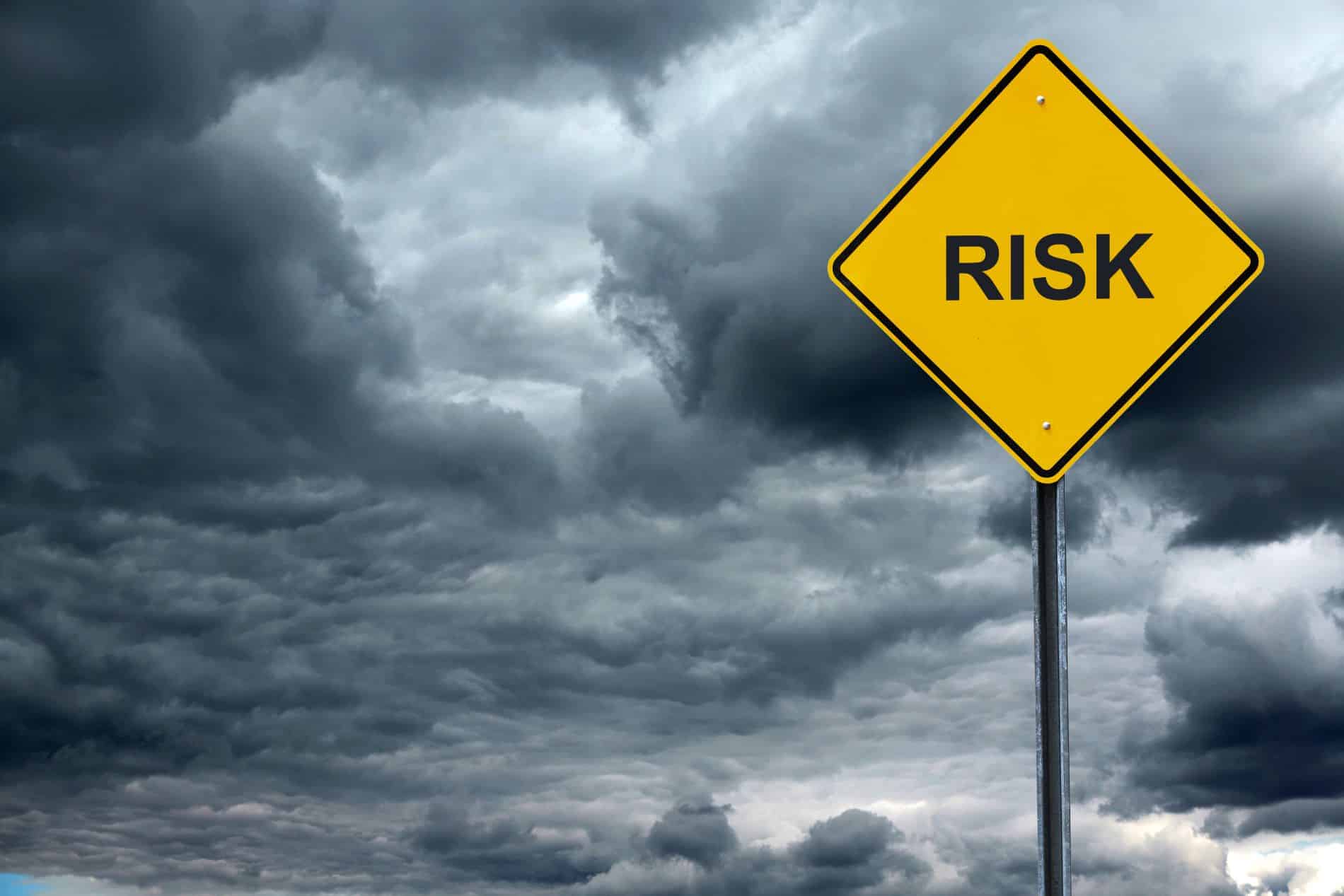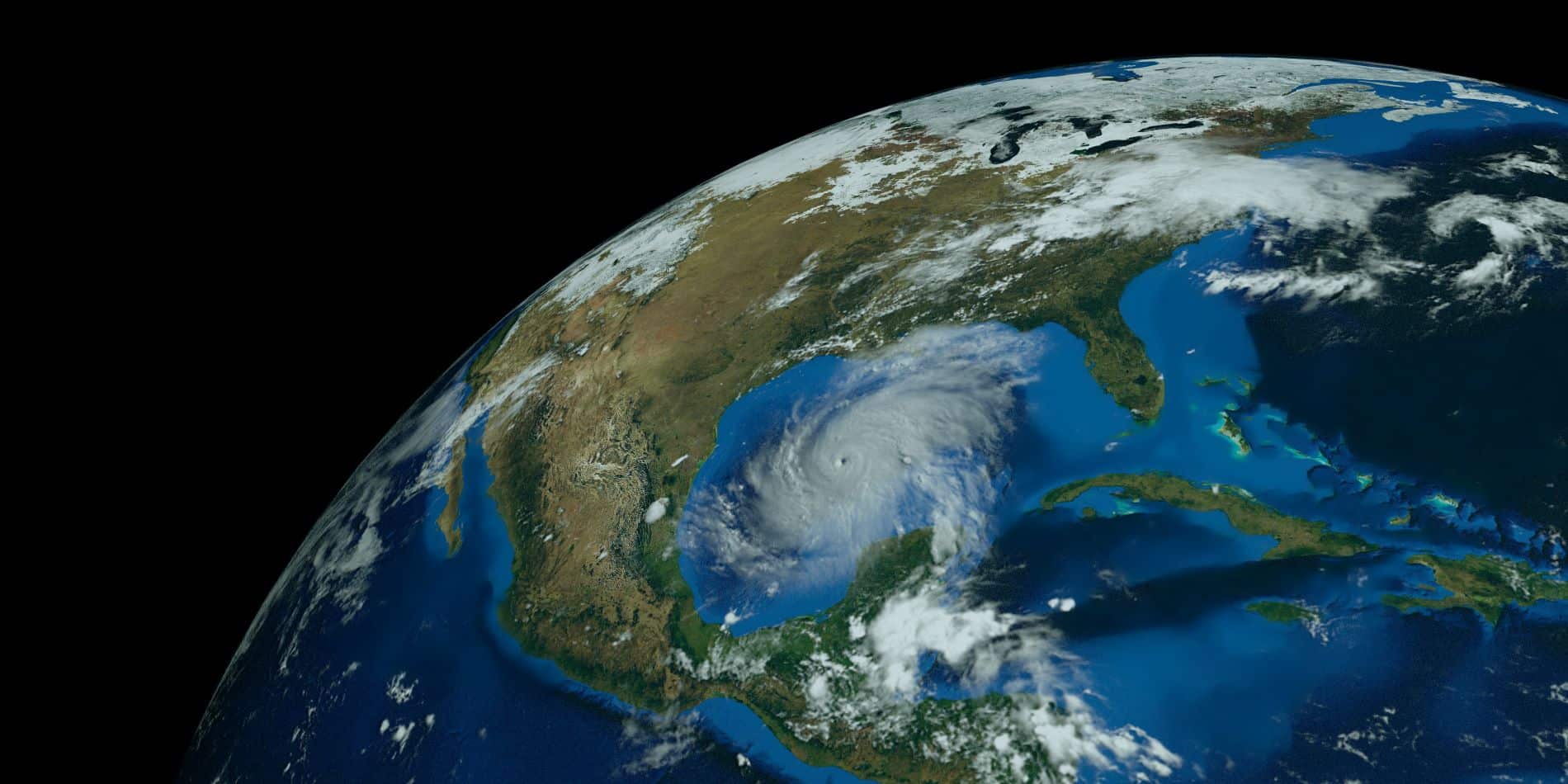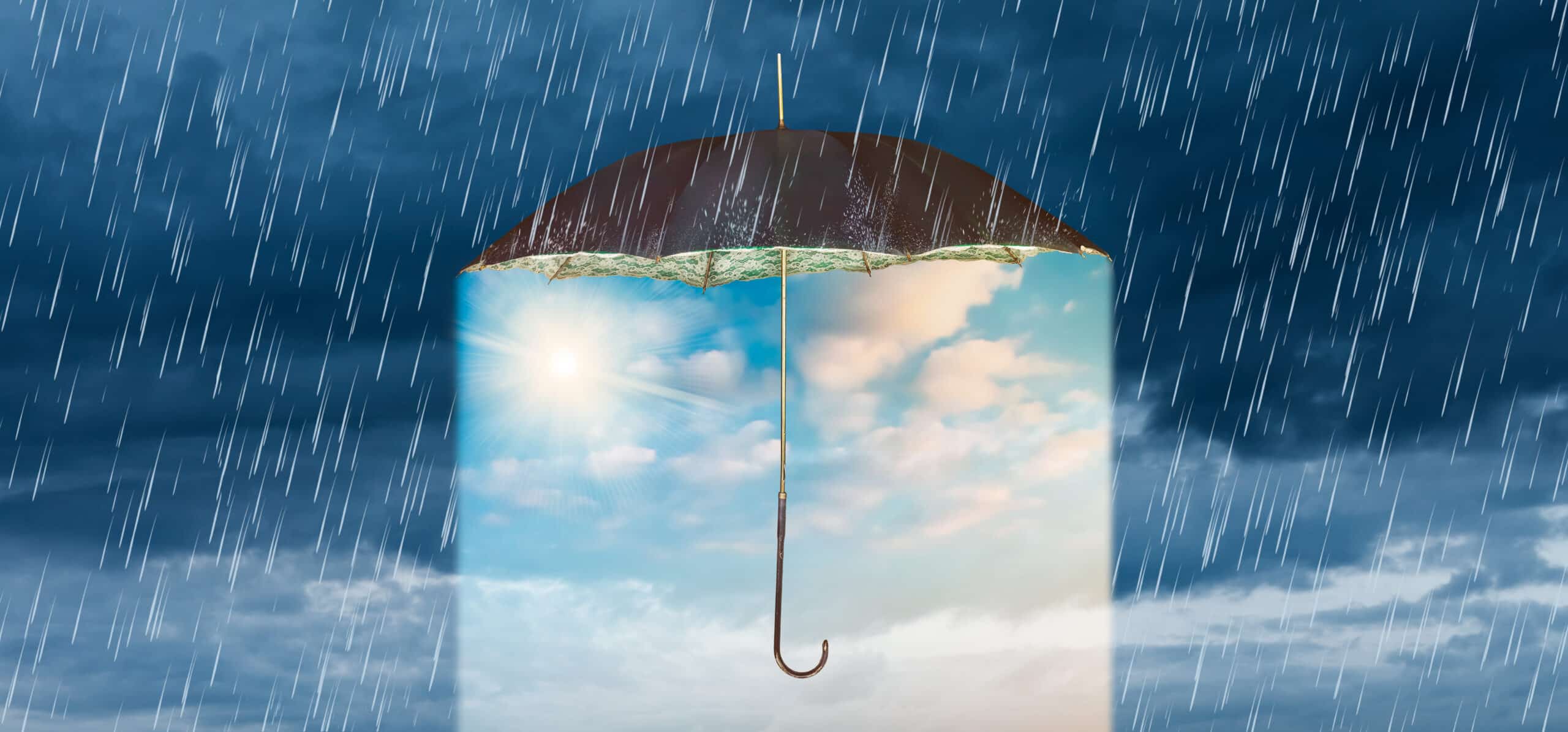Summer Danger – 14 Simple Ways to Safely Grill and Avoid High Risk Homeowners Insurance
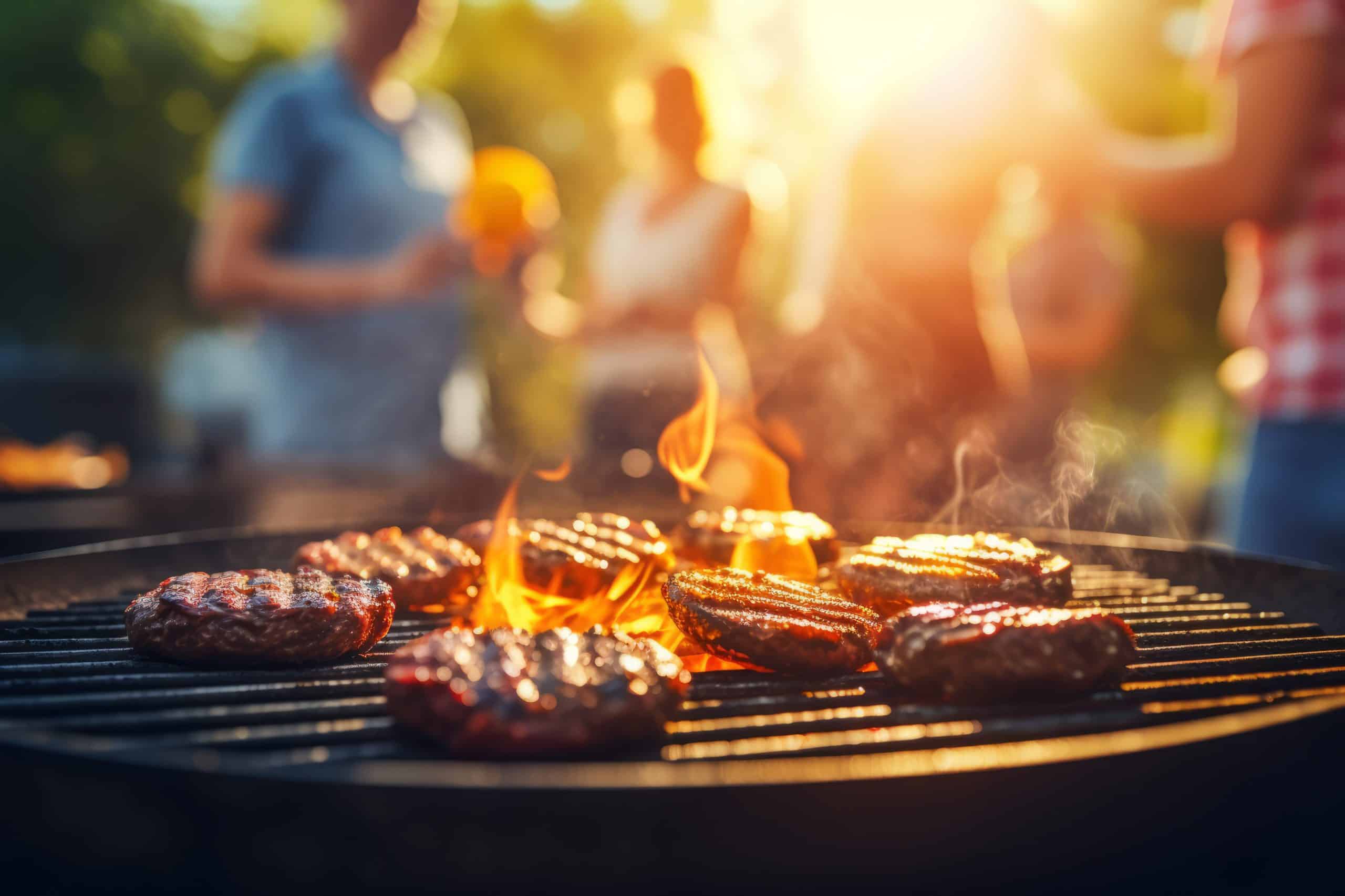
With Fathers Day 2024 coming up, millions of families across the U.S. will be celebrating, with a central piece of that American holiday, grilling. With upwards of 100,000,000 grills in American Backyards, with a few exceptions, very little is paid attention, to the high risks with this staple of American culture.
While grilling will always be an American past-time, they will always have an inherent hazard to safety for people and for high risk damage to property.
- Position Your Grill Correctly
- Tip: Always place your grill at least 10 feet away from buildings, overhangs, and combustible materials. This is the most common cause of grill related fire loss which is a large number with the prevalence of grills.
- Explanation: Grills generate significant heat and can cause nearby materials to ignite. Keeping a safe distance reduces the risk of accidental fires both for people as well as property loss.
- Inspect the Grill Before Use
- Tip: Check for gas leaks, blockages, and any damage before lighting your grill.
- Explanation: Leaks and blockages can lead to dangerous flare-ups or explosions. Regular inspections ensure that the grill is safe to use.
- Clean the Grill Regularly
- Tip: Clean the grill grates and grease trap after each use.
- Explanation: Grease buildup can cause flare-ups, which can lead to uncontrollable fires. Regular cleaning minimizes this risk.
- Use Grill Tools
- Tip: Use long-handled tools specifically designed for grilling.
- Explanation: Long-handled tools keep your hands at a safe distance from the heat and flames, reducing the risk of burns.
- Never Leave the Grill Unattended
- Tip: Always stay near your grill while it is in use.
- Explanation: Unattended grills can quickly lead to dangerous situations if a flare-up or fire occurs. Being present allows you to react promptly to any issues.
- Keep a Fire Extinguisher Nearby
- Tip: Have a fire extinguisher or a bucket of sand within reach.
- Explanation: In case of an unexpected fire, having a fire extinguisher or sand on hand can help you control the fire quickly before it spreads.
- Use Propane and Charcoal Safely
- Tip: For propane grills, check for gas leaks regularly. For charcoal grills, use a charcoal chimney starter.
- Explanation: Proper handling of fuel sources prevents accidents. Propane leaks can lead to explosions, and improper lighting of charcoal can cause burns.
- Control the Temperature
- Tip: Use a grill thermometer to monitor the grill’s temperature.
- Explanation: Keeping the temperature under control prevents food from burning and reduces the risk of flare-ups.
- Keep Children and Pets Away
- Tip: Establish a safe zone around the grill that children and pets are not allowed to enter.
- Explanation: Children and pets are often unaware of the dangers posed by grills. Keeping them at a safe distance prevents accidental burns or other injuries.
- Use the Right Starter Fluid
- Tip: Only use charcoal starter fluid specifically designed for grilling. Never add fluid to an already lit fire.
- Explanation: Other flammable liquids can cause uncontrollable fires or explosions. Adding fluid to an already lit fire can result in dangerous flare-ups.
- Properly Dispose of Coals and Ashes
- Tip: Allow coals and ashes to cool completely before disposing of them in a metal container.
- Explanation: Hot coals and ashes can ignite trash or other materials if not handled properly. Cooling them completely prevents accidental fires.
- Wear Appropriate Clothing
- Tip: Avoid loose clothing and wear flame-resistant gloves or mitts.
- Explanation: Loose clothing can catch fire easily, and flame-resistant gloves provide extra protection for your hands.
- Stay Sober
- Tip: Avoid consuming alcohol while grilling.
- Explanation: Alcohol impairs judgment and reaction time, increasing the likelihood of accidents. Staying sober ensures you can respond quickly to any issues.
- Follow Manufacturer Instructions
- Tip: Always read and follow the manufacturer’s instructions for your specific grill model.
- Explanation: Each grill may have unique safety requirements and operating procedures. Following the instructions ensures safe and proper use.
By adhering to these safety tips, you can enjoy grilling while minimizing the risk of injuries and the accidents that lead to can wreck what is supposed to be a fun and safe experience. Avoidable injuries are by far the most important risk that needs to be avoided. As a secondary issue, homeowners insurance claims arising from the lack of diligence can make some people’s home to be considered to high of a risk and uninsurable. Consumers who have had a fire that did not have negligence are already viewed by insurance companies as high risk. This underscores the necessity of full adherence to all safety measures. There is no room for lazy grilling, no matter how relaxed you may be.
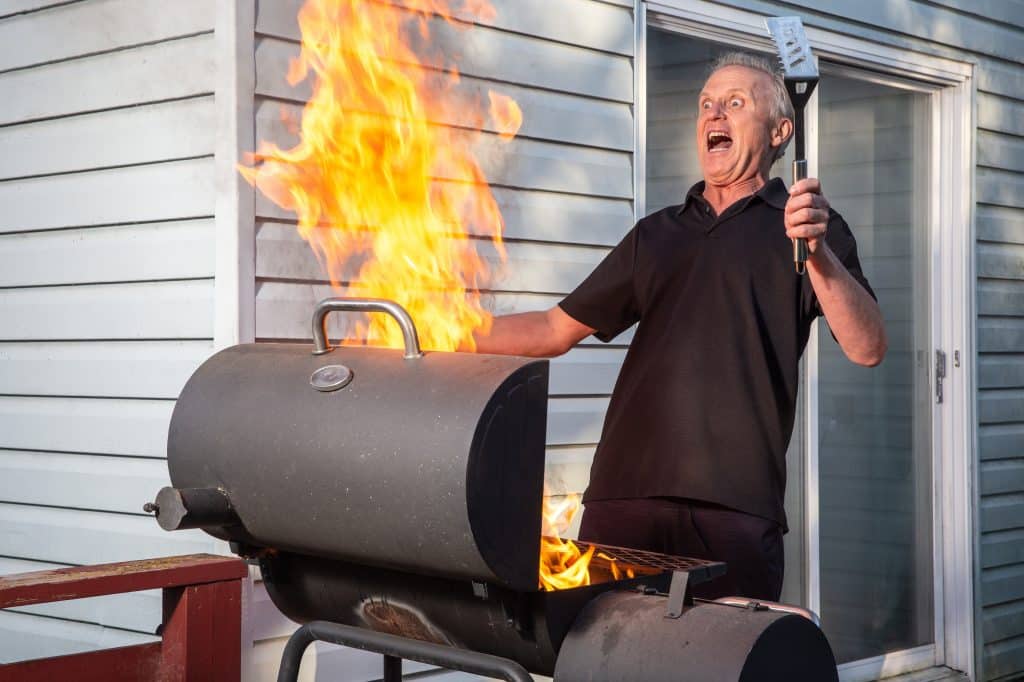
Homeowners Insurance and Grill Fire FAQ
1. General Safety
- Q: What should I do before starting a grill?
- A: Ensure the grill is on a stable, flat surface away from flammable materials. Check that all parts are in good working condition, and keep a fire extinguisher nearby.
2. Starting a Fire
- Q: How do I safely start a charcoal grill fire?
- A: Use a chimney starter for charcoal. Place crumpled newspaper at the bottom, fill the top with charcoal, and light the newspaper. Wait until the charcoal is ashed over before spreading it in the grill.
3. Managing the Fire
- Q: How do I control the heat on a charcoal grill?
- A: Adjust the vents to control airflow. Open vents increase heat, while closing them decreases heat. Arrange charcoal in zones for direct and indirect cooking.
4. Extinguishing the Fire
- Q: What is the best way to put out a grill fire?
- A: For charcoal grills, close the lid and vents to cut off oxygen. For gas grills, turn off the burners and gas supply. Never use water to extinguish a grease fire; instead, use baking soda or a fire extinguisher.
5. Handling Grease Fires
- Q: How do I prevent grease fires?
- A: Clean the grill regularly to remove grease buildup. Use lean cuts of meat and trim excess fat. Keep a spray bottle of water handy to control minor flare-ups.
6. Emergency Situations
- Q: What should I do if a grill fire gets out of control?
- A: Evacuate the area and call emergency services. If safe, use a fire extinguisher to try to control the fire. Never move a burning grill.
7. Post-Grill Care
- Q: How do I safely clean my grill after use?
- A: Let the grill cool completely before cleaning. Use a grill brush to remove debris from grates. Dispose of charcoal ashes in a metal container once completely cooled.
8. Troubleshooting
- Q: What should I do if my gas grill won’t light?
- A: Check the gas supply and connections. Ensure the igniter is functioning. If the problem persists, consult the grill manual or a professional.
Recent Posts
2024- Are Burglary Claims Still a High Risk?
Burglaries are a persistent threat to homeowners across the U.S., with over one million break-ins occurring annually. Even though burglary rates have decreased...
2024 Atlantic Hurricane Season Predictions
All Early Predictions Call for a Busy 2024 Atlantic Hurricane Season Forecasters are predicting an exceptionally active Atlantic hurricane season in 2024. The...
Top High-Risk Home Insurance Factors
When you own a home, one of the most important things you need is home insurance. This insurance helps protect your house and...


